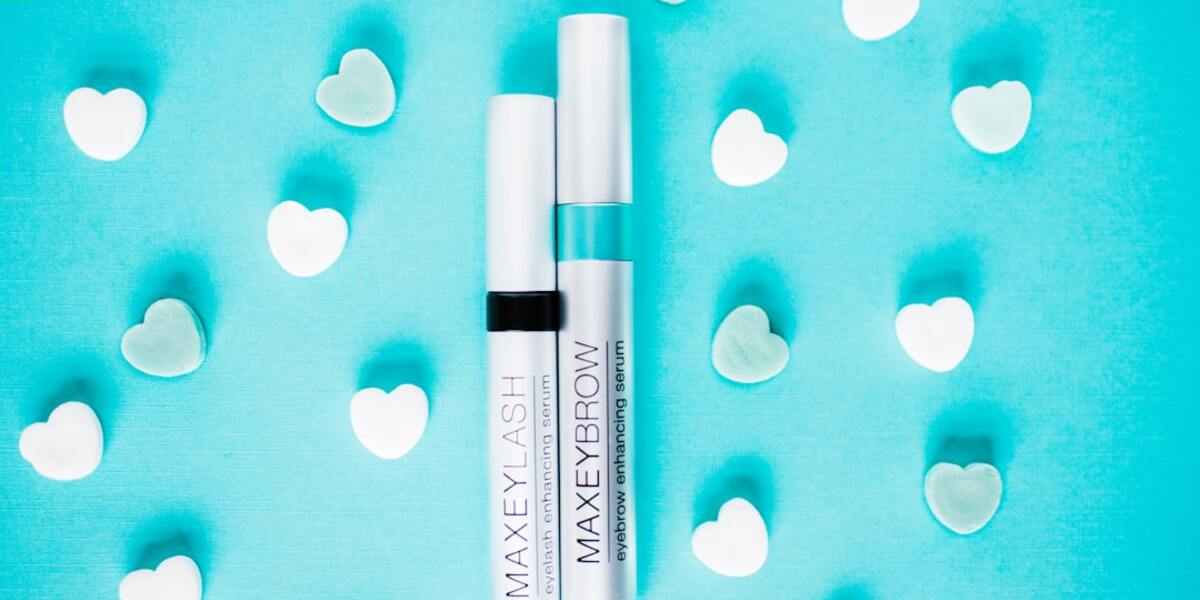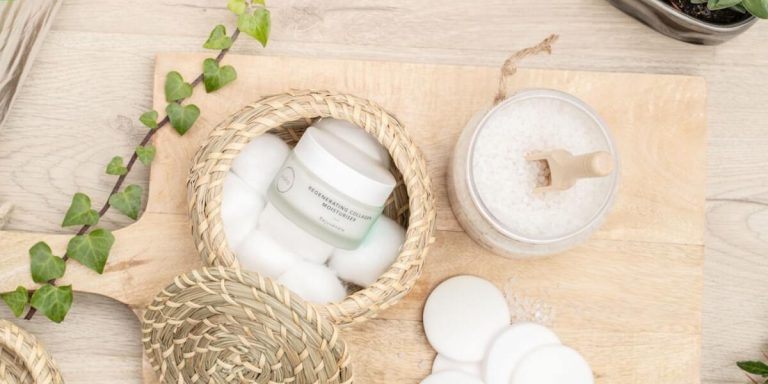Biotin vs Prenatal Vitamins for Hair Growth: A Comprehensive Comparison
Navigating through the world of hair growth vitamins can be a daunting task. With various types on the market like biotin and prenatal vitamins, how do you determine what’s best for your tresses? This article will dive deep into “biotin vs prenatal vitamins for hair growth” providing an easy-to-understand comparison to help guide your decision-making process.
Understandably, everyone craves lush, thick locks that grow at a fast rate. But with so many vitamin options available promising gorgeous strands, it might seem overwhelming deciding where to start. Read on as we delve into these two popular choices: Biotin and Prenatal Vitamins – comparing their benefits and effectiveness in promoting hair health.
Did you know?
Did you know that prenatal vitamins contain more Folic Acid and Iron compared to biotin supplements? These extra nutrients can potentially boost hair growth, offering a unique advantage.
Understanding Biotin and Its Role in Hair Growth
Biotin, also known as vitamin B7 or H, is a pivotal player in the arena of hair growth and health. Being one of nature’s integral tools for enhancing hair density and strength, it has emerged as a go-to supplement among individuals yearning for tresses like Rapunzel’s. A deficiency in this essential nutrient can result in thinning or discoloration of the hair – issues that serve as catalysts to impending baldness.
The dynamics behind biotin’s role begin at the cellular level where it metabolizes fatty acids – crucial components your body needs to promote healthy cell growth. With these building blocks supporting your follicles, you are empowering them with protection against damage from environmental factors such as ultraviolet rays or low humidity levels.
Spanning across our diet spectrum from organ meats and fish to nuts and seeds- incorporating sufficient amounts bodes well for lustrous locks affirming itself once again why biotin truly deserves its status quo among vitamins instrumental to effective hair growth strategy.
The Science Behind Biotin as a Hair Supplement
Biotin, also known as vitamin B7, has established itself in our grooming routine owing to its benefits for hair health. Scientifically speaking, biotin is a water-soluble vitamin that serves several important roles within the body.
Firstly, let’s delve into how biotin aids hair growth. It comes down to protein production – this critical nutrient helps the body convert food into energy and supports the metabolism of proteins needed for healthy nails and tresses. Our hair consists of keratin- a type of protein which gets strengthened with proper intake of biotin thereby promoting healthier strands.
Moreover, research affirms an association between deficiency in micronutrients like Biotin and premature thinning or graying of hair. Therefore supplementing your diet with adequate quantities can help avoid such disruptions to normal cycle by improving overall scalp health leading towards lush locks!
Daily Recommended Intake of Biotin for Optimal Hair Health
When it comes to ensuring optimal hair health, understanding the daily recommended intake of Biotin plays a crucial role. As one of the primary vitamins involved in promoting healthy and strong hair growth, Biotin is frequently referred to as “hair food”.
Starting with an overview – adults are generally supposed to consume 30 micrograms (mcg) per day according to dietary guidelines. However, for those looking specifically at boosting their hair growth rate or combating issues like thinning or balding, higher doses might be required under medical supervision.
Now shifting our focus on biotin’s function in relation with other supplements; entering into comparison with prenatal vitamins commonly used for enhancing hair vigor. Prenatal vitamins carry a blend incorporating various nutrients including Folic Acid and Iron besides others which foster general body wellness extending benefits towards healthier tresses as well.
Comparatively, scientific evidence does not assert the superiority of biotin or prenatal vitamins exclusively for hair enhancement. Both appear beneficial, addressing different nutrient needs. Prioritize based on your deficiency:
- For overall bodily nutrition, choose prenatal vitamins.
- For specific hair improvement, opt for high-dose supplements enriched with biotin.
Biotin works wonders when consumed adequately!
Comparing Prenatal Vitamins and Their Impact on Hair
The world of hair growth supplements is teeming with a variety of choices, and among the most popular are prenatal vitamins and biotin. These two options have garnered significant attention for their potential to boost healthy tresses. It’s important however not to take them at face value without delving into what each truly offers.
Prenatal vitamins are often considered secret weapons for promoting lustrous hair, even for those not pregnant. They typically contain key nutrients such as folic acid, iron, and biotin—all of which significantly improve hair health.
Though initially intended for pregnant women who need extra sustenance, non-pregnant individuals have also begun taking these vitamins after observing a fantastic side effect: healthier-looking hair!
On one hand we’ve got Biotin by itself -strictly speaking targeting skin, nails, and hair improvement considering it plays pivotal roles in producing amino acids—the building blocks of protein-rich structures including our crowning glories! A deficiency can lead directly to losing those cherished locks hence its popularity amongst both men & women seeking lush mane naturally.
Key Ingredients in Prenatal Vitamins that Benefit Hair
Prenatal vitamins are packed with a variety of essential nutrients that nourish not only the expecting mother and her baby but also provide substantial benefits to hair health. Therefore, comparing prenatal vitamins in relation to their impact on hair growth, particularly against dedicated hair supplements like biotin is crucial.
One key ingredient found abundantly in prenatal vitamins is Biotin. This vitamin belongs to the family of Vitamin B-complex and plays an instrumental role in enhancing keratin infrastructure, which forms your basic hair structure. A deficiency can lead to brittle nails and thinning or splitting hairs.
Discussing its comparison with standalone biotin tablets for better understanding; while both contain this vital element at heart – they differ vastly based on other nutritional compositions.
Another important nutrient present in most prenatals is Iron which aids RBC (red blood cells) production that carries oxygen needed by follicles for efficient functioning thus promoting healthy locks.
Equally worthy of mention is Zinc being known well as ‘hair helper’; it maintains oil glands surrounding follicular areas moreover keeps scalp ailments at bay besides boosting tissue repair after damage thereby assisting indirectly into speedier strand sprouting process!
How Prenatal Vitamins Differ from Standard Hair Supplements
Prenatal vitamins and standard hair supplements are both marketed for their beneficial impacts on hair growth. But how exactly do they differ?
To start, the main distinction lies in their compositions. Standard hair growth supplements often spotlight one key ingredient – Biotin. This B-vitamin is renowned for its role in strengthening not just your tresses but also your skin and nails.
On the contrary, prenatal vitamins carry a more comprehensive formulation meant to support pregnant women’s nutritional needs during such an essential phase of life. However, these cocktails of nutrients can likewise work wonders on one’s locks! They commonly contain high levels of folic acid that promotes cell renewal conducive to healthy follicles.
In terms of effectiveness between biotin vs prenatal vitamins for hair growth, it varies widely amongst individuals due to different genetic makeup and nutrient deficiencies prevalent within them.
While some swear by results from taking concentrated doses of biotin-facing less shedding and witnessing stronger strands-others claim noticeable improvements with daily intake of multivitamins like those found in prenatals- healthier scalp accompanied by denser crowning glory!
But beware: even if all sounds rosy so far, side effects aren’t outcasted yet as too much could possibly cause problems such as breakouts or gastrointestinal discomforts which mustn’t be ignored!
Evaluating the Effectiveness of Biotin vs. Prenatal Vitamins
The ongoing debate between Biotin and Prenatal Vitamins for hair growth continues to be a point of interest in 2023. Both are hailed as miracle supplements by some, while others firmly establish their loyalty towards one or the other. When evaluating the effectiveness of these two vitamins, we must consider both scientific research and anecdotal evidence.
Biotin is often referred to as Vitamin H (Hair), showcasing its reputation for being instrumental in maintaining healthy locks. Scientifically recognized for improving keratin infrastructure – a protein that makes up your hair – biotin has long been associated with promoting lush fast-growing tresses. Anecdotes corroborate this idea too; numerous firsthand accounts attest to biotin making significant improvements not only in terms of length but also adding shine and volume.
Prenatal vitamins are specially formulated to meet the increased nutritional needs of pregnant women, providing key nutrients such as folic acid, iron, and vitamin D. Although these nutrients indirectly support hair health, they lack the direct focus on it that biotin has. Nevertheless, because many women experience significant improvements in their hair’s quality and volume during pregnancy, people outside the maternal audience have started to choose prenatal vitamins over standard multivitamins.
Despite limited clinical studies on their impact for non-pregnant individuals, online testimonials abound that praise prenatal vitamins for improving overall well-being and promoting healthier hair.
Clinical Evidence: Which Is Superior for Enhancing Hair Growth?
In the debate between Biotin and Prenatal vitamins for hair growth, it’s essential to look at clinical evidence. Both have been recognized in the beauty industry as miracle supplements that promise fuller, healthier hair. However, comparing them head-to-head can provide a clearer picture of which might be superior.
Biotin is a water-soluble vitamin part of Vitamin B family – specifically B7. It plays an integral role in converting certain nutrients into energy and helps maintain healthy skin, nails, and indeed hairs too. Clinical studies indicate that deficiency in biotin may lead to substantial hair loss but further research has not yet conclusively shown whether surplus intake over normal dietary levels significantly improves your hairstyle or encourage significant new growth.
Combining Biotin and Prenatal Vitamins: Possible Synergies or Risks
In the vast world of hair growth vitamins, Biotin and Prenatal Vitamins are two names that stand out. Both have been reportedly advantageous when it comes to boosting hair health, but which one aces in delivering fast and effective results? Let’s delve into understanding how these two work individually and combined.
Biotin, also known as Vitamin H or Coenzyme R, is a water-soluble vitamin commonly linked with promoting healthy skin, nails, digestive tract – but most notably recognized for its role in improving hair thickness and strength. It functions by aiding your body’s keratin infrastructure – an essential protein making up our tresses.
On the other hand, we have prenatal vitamins- typically taken during pregnancy consisting of multivitamins such as iron-rich Folic Acid alongside Vitamins A & D. These elements not only ensure proper fetal development but can play significant roles in maintaining lustrous locks journeys outside maternity phases because they provide nutrition to follicles thereby enhancing their quality.
Now let us consider combining Biotin with prenatal vitamins: Is there synergy or risk?
Combining biotin with prenatal vitamins might lead you think like doubling down on benefits–after all more nutrients better right? However scientifically speaking mixing them isn’t necessarily superior over taking each independently.
Conclusion
In wrapping up, “biotin vs prenatal vitamins for hair growth” isn’t quite a boxing match with an absolute victor. Rather, it is about understanding the unique needs of your hair and body. Both Biotin and Prenatal Vitamins have their merits when it comes to promoting healthier, thicker tresses; the choice between them primarily depends on personal nutritional deficiencies and health objectives.
Feel free to explore around our website where we dive further into other essential Hair Growth Vitamins that might be right for you. Knowledge empowers choices, so leverage this wealth of information at your fingertips towards achieving robust locks you can flaunt!







